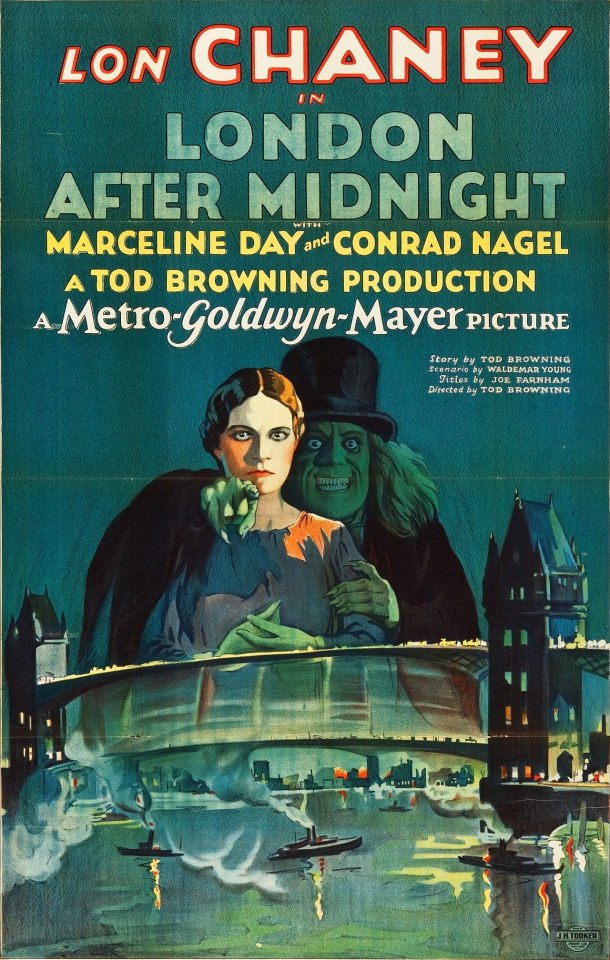#archivist propaganda
Note
Reasons to vote Ivy Alexandria:
"Ivy will try to retire, spend her final centuries on a small library planet with those books that mean so much to her. Unfortunately, the library will do what they are so prone to and burn in a pointless war. Ivy falls launching an escape pod piled high with ancient texts that scholars will someday say were actually... quite a dull read."
Ivy was born in a library and raised surrounded by books. According to the website, "for her birthday every year, she was given a book [...] She kept them all in a carefully separated pile, in the nest of blankets she slept in, in a cubby-hole made in the corner between two long bookcases [...] [she] grew up there, climbing bookshelves as other children might trees, reading cross-legged on top of them, or curled under a desk, or in a chair, or leaning against a shelf. Books were her companions, her friends, her lovers."
She originally died during a library fire where she refused to let go of the books to save herself and hated her assailant not for attacking her, but for letting the books burn.
She describes herself as "search engine, encyclopaedia, almanac, index. She is not the reader, but the book, a library of books, each waiting its turn on the dusty shelves of an endless archive, centuries in the building."
She remembers her past as a "catalogues of names, lists of dates, archived footage in the library of her head"--she knows the facts, but she not the emotions connected to them. According to her official story "Archive Footage," "the present, she sees, she hears, she touches, tastes, smells, feels: that is what the present is for, the moment that is the only moment, the only experience, that she must absorb every facet of, because it is the one, the only now. There is no past but the chronicles, no future to speak of: there is only now, and she lives it to its fullest and is glad of it." She knows all the data, but she forgets herself every day, so she gleefully spends every day learning and understanding as much as she can.
She's an immortal space pirate musician archivist. Fuck yeah.
FUCK YEAH LOVE HER <3
45 notes
·
View notes
Text
we all describe Jon Jarchivist Sims as a wet cat and I bet he stretches like one too. like that man probably sits at his desk for 8 hours a day at a minimum. it probably takes everything inside Martin not to go "aww big stretch" whenever he sees him do it
#tma#the magnus archives#jon sims#jonathan sims#the archivist#tma headcanons#tma shitpost#martin blackwood#jon cat boy propaganda /j#1k notes
1K notes
·
View notes
Text
so, i'm a weirdo and have archived some old atomic age propaganda, PSAs & commercials on my plex server. however, i was dismayed that that there were no proper posters available for them, making my library look kinda bad and messy, imo. so, i made some myself!
here's some of my favorites:






some of these were more complex than others, but for all of them i used pre-existing materials as the basis for them. i made sure to incorporate visual elements from the respective shorts into the poster design, but i also looked to pamphlets and posters of the time for inspiration and elements that I could use.
i also had to go hunting down some of these fonts to match the specific style i was going for, and that was a pain in the ass lol
(also, fun little easter egg, i layered some flipped text at a low opacity over the "Fallout When and How to Protect Yourself Against It" poster to give it that look of a cheap pamphlet. the text is a transcription from an interview with a scientist explaining why fallout shelters don't work. the same fallout shelters that the psa in question heavily promotes.)
#my art#atomic age#1950s#fallout#nuclear war#nuclear weapons#propaganda#us history#canadian history#archivist scout#atomic bomb#graphic design
144 notes
·
View notes
Text

Vanoé yuri
#artists on tumblr#digital fanart#digital art#vanitas no carte#les memoires de vanitas#vnc vanitas#the case study of vanitas#vanitas no shuki#vanitas#vnc noe#vnc#noe archiviste#vnc noé#noé archiviste#vanoe#vanoé#you are not immune to propaganda#yuri beam
352 notes
·
View notes
Text
"This explains everything": Nimona and the "truth" in archives
The Director claims an ancient scroll explains “everything” just before she is about to be arrested for her crimes… convenient?
Last September, Sam Cross wrote another one of her wonderful (and well-thought-out) reviews about the video game “Sea of the Stars”. Within the post, she argued that the game focuses on the “idea of archival collections being a truth but not the truth,” adding that…

View On WordPress
#archives stereotypes#bars#fear#gay people#lesbians#LGBTQ+#mythology#Nimona#No Archivist Present#oppression#Pop Archives#propaganda#record manipulation#records are not the truth#Samantha Cross#shapeshifters#spoken word#terrorism#truth seeking#truth suppression#video games
15 notes
·
View notes
Text


cartoonifies your archival men
#jon you tiny old woman with a beard I love you <3#in recent news my mom called martin a dweeb (affectionately) and I have not recovered jhdjlkjlskj#art#my art#fanart#the magnus archives#tma#jonathan sims#martin blackwood#2023#traditional art#mixed media#turtlemurmurs#martin's hair gets longer in my drawings as jon's hair gets wider jshlks#which ironically started as me using dev patel loosely as a hair reference#and then I later found a upsurge of posts spreading dev patel archivist propaganda and I was like bro I am already so here for it shskjkldh
28 notes
·
View notes
Text
UNRELIABLE NARRATORS; SIDE C


Jeramie Brasirie Propaganda:
The narrator does the episode recaps, and sets the scene about the coming of kings. we assume this is about the protagonists, until Jeramie finally reveals himself and goes yes i wrote the story, this was about me teehee <3 this is MY story jokes on you. granted this is only like episode 11. someone else could describe this better than me for sure.
HE TELLS THE OTHER KINGS TO READ BETWEEN THE LINES. ABOUT A BLANK PAGE. SIR.
He starts the show by saying that this story was about the one who would become king of the world, and considering Gira is our main character we all think it's him until Jeramie's official appearance in episode 11 where he's like "psyche this story was about me this whole time ;)" and he complains when the other characters can't "read between the lines" to find out his backstory when like. My brother in the Shugods there are no lines to read between. You want them to find out that there was a sixth ranger this whole time? Don't blame them for not knowing when you literally left that part of the story blank! You're trying to explain that you had no involvement in the Wrath of the Gods? Then just tell them instead of saying nothing and telling them to infer something from that!!! Anyways I love Jeramie, he's great
Man wants you to read between the lines but is literally so cryptic no one knows what he even means most of the time. And he's like this is the story of these people and then nah it's my story, like he's really just saying stuff.
narrates the intro & ending for every episode, including before he's introduced, & once he IS then he makes very obtuse claims & hints to figuring out the stories he tells that none of the other characters can figure out or could ever possibly figure out
Noé Archiviste Propaganda:
Recalls the same event twice in the story, framing it wildly different each time, dismisses a clearly traumatic event he mentions in the passing as nothing, the narration is pretty... repression-tinted? Also paints his mentor figure in a positive light despite him clearly being sketchy
#jeramie brasieri#jeramie brasirie#ohsama sentai kingohger#noé archiviste#vanitas no carte#i could've sworn noé archiviste had more propaganda#unreliable narrator battle#unreliable narrators#polls#side c
106 notes
·
View notes
Text
Whenever I see folks get excited about the ace ring I put on Polly it fills me with immense joy.
In this house we say Ace Polly Rights!
#archivist rambles#hfth#I'm trying to put him in more purple now#the ring wasnt enough propaganda#time to wear ace colors#lets manifest ace polly!
53 notes
·
View notes
Text
NOÉ ARCHIVISTE - Vanitas no Carte

PROPAGANDA:
He's everything to me.
#poll#noé archiviste#noé vanitas no carte#vanitas no carte#the case study of vanitas#image included#has propaganda#mod found image#week six
32 notes
·
View notes
Text
thinking about 2nd dimension love händel
#because my brain is broken waisjsksl#but it is a fun concept. thinking about what happened to them#if sherman-2 survived until the events of the movie i can definitely see him being some kind of archivist#gathering and collecting all the old books he can find to perserve them and keep the past alive#danny and bobbi are harder to pin down though#idk if danny would have been in a resistance group per se but he'd definitely be on the outskirts of society#his ass would NOT be conforming#(unless something happened that broke him so harshly that he doesn't have the will to fight anymore)#maybe bobbi-2 was roped into working under doof-2. not directly but maybe in the propaganda department or smth#cause bobbi-1 seemed to be really good at branding so that could work#hmmmm#phineas and ferb#love händel#at2d#across the 2nd dimension#i think what makes things tricky is that doof-1 was a fan of lh so idk if doof-2 would hurt them or kill them#or keep him for his own amusement or what#like how jaba had his own band just. hanging out ajskak#whatever happened to them they're certainly miserable there
6 notes
·
View notes
Text

Family can be a dumbass and the little girl that adopted him
38 notes
·
View notes
Note
have we discussed the fact that Giles was literally on the cover of the real actual American Libraries magazine??

in the article, they list his SuperLibrarian characteristics:
Respects the sacredness of the book.
Saves the world daily through information.
Invests the mundane with a fierce joy.
Stands for adult comfort and reassurance.
Knows that some days, evil prevails.
here's a link to the article (downloads a PDF): https://americanlibrariesmagazine.org/wp-content/uploads/2017/03/buffy.pdf
Oh this is Excellent propaganda
99 notes
·
View notes
Note
Thank you for helping spread End Avatar Grimora propaganda; I’m glad I’m not the only one with end!Grimora taking residence in my head
YES im happy to help my queen claim her rightful place. i enjoy being fair on polls and not blindly voting for my faves but i feel so so deep in my bones she is unequivocally one of the best characters to represent the End in any media ever. i couldnt let it slide. she is The End Of The Game for the love of god
#siccing my inscryption followers on polls makes me feel like a mob boss taking out competition so my babygirl can win the beauty pageant#i smile and puff my fat cigar#ask#also i saw the propaganda you sent to the blog and it was very well done. like a whole ass cited essay!!#it was impressive and i enjoyed reading it LOL#i dont remember if you or if other propaganda mentioned it but Grimora's P03 boss is also called the Archivist. if anyone even care.#i want to make art for TMA AU so much. maybe ill do it to celebrate
44 notes
·
View notes
Text
I do NOT have a problem with the color magenta!

I have a problem with it when paired in a disgusting way with other colors!
#she big mad#lol#lord cardinal lambda#timelord propaganda#gallifrey#doctor who rp#starter#the archivist
3 notes
·
View notes
Text
The Forgotten History of the World’s First Transgender Clinic
I finished the first round of edits on my nonfiction history of trans rights today. It will publish with Norton in 2025, but I decided, because I feel so much of my community is here, to provide a bit of the introduction.
[begin sample]
The Institute for Sexual Sciences had offered safe haven to homosexuals and those we today consider transgender for nearly two decades. It had been built on scientific and humanitarian principles established at the end of the 19th century and which blossomed into the sexology of the early 20th. Founded by Magnus Hirschfeld, a Jewish homosexual, the Institute supported tolerance, feminism, diversity, and science. As a result, it became a chief target for Nazi destruction: “It is our pride,” they declared, to strike a blow against the Institute. As for Magnus Hirschfeld, Hitler would label him the “most dangerous Jew in Germany.”6 It was his face Hitler put on his antisemitic propaganda; his likeness that became a target; his bust committed to the flames on the Opernplatz. You have seen the images. You have watched the towering inferno that roared into the night. The burning of Hirschfeld’s library has been immortalized on film reels and in photographs, representative of the Nazi imperative, symbolic of all they would destroy. Yet few remember what they were burning—or why.
Magnus Hirschfeld had built his Institute on powerful ideas, yet in their infancy: that sex and gender characteristics existed upon a vast spectrum, that people could be born this way, and that, as with any other
diversity of nature, these identities should be accepted. He would call them Intermediaries.
Intermediaries carried no stigma and no shame; these sexual and Gender nonconformists had a right to live, a right to thrive. They also had a right to joy. Science would lead the way, but this history unfolds as an interwar thriller—patients and physicians risking their lives to be seen and heard even as Hitler began his rise to power. Many weren’t famous; their lives haven’t been celebrated in fiction or film. Born into a late-nineteenth-century world steeped in the “deep anxieties of men about the shifting work, social roles, and power of men over women,” they came into her own just as sexual science entered the crosshairs of prejudice and hate. The Institute’s own community faced abuse, blackmail, and political machinations; they responded with secret publishing campaigns, leaflet drops, pro-homosexual propaganda, and alignments with rebel factions of Berlin’s literati. They also developed groundbreaking gender affirmation surgeries and the first hormone cocktail for supportive gender therapy.
Nothing like the Institute for Sexual Sciences had ever existed before it opened its doors—and despite a hundred years of progress, there has been nothing like it since. Retrieving this tale has been an exercise in pursuing history at its edges and fringes, in ephemera and letters, in medal texts, in translations. Understanding why it became such a target for hatred tells us everything about our present moment, about a world that has not made peace with difference, that still refuses the light of scientific evidence most especially as it concerns sexual and reproductive rights.
[end sample]
I wanted to add a note here: so many people have come together to make this possible. Like Ralf Dose of the Magnus-Hirschfeld-Gesellschaft (Magnus Hirschfeld Archive), Berlin, and Erin Reed, American journalist and transgender rights activist—Katie Sutton, Heike Bauer. I am also deeply indebted to historian, filmmaker and formative theorist Susan Stryker for
her feedback, scholarship, and encouragement all along the way. And Laura Helmuth, editor of Scientific American, whose enthusiasm for a short article helped bring the book into being. So many LGBTQ+ historians, archivists, librarians, and activists made the work possible, that its publication testifies to the power of the queer community and its dedication to preserving and celebrating history. But I ALSO want to mention you, folks here on tumblr who have watched and encouraged and supported over the 18 months it took to write it (among other books and projects). @neil-gaiman has been especially wonderful, and @always-coffee too: thank you.
The support of this community has been important as I’ve faced backlash in other quarters. Thank you, all.
NOTE: they are attempting to rebuild the lost library, and you can help: https://magnus-hirschfeld.de/archivzentrum/archive-center/
#support trans rights#trans history#trans#transgender#trans woman#trans rights#trans representation#interwar period#weimar#equality#autistic author#nonbinary#lgbtq representation#lgbtqia#book news#book#books#new books#thank you#neil gaiman#for your support
2K notes
·
View notes
Text
Look if there's one thing, just one thing, that I wish everyone understood about archiving, it's this:
We can always decide later that we don't need something we archived.
Like, if we archive a website that's full of THE WORST STUFF, like it turns out it's borderline illegal bot-made spam art, we can delete it. Gone.
We can also chose not to curate. You can make a list of the 100 Best Fanfic and just quietly not link to or mention the 20,000 RPFs of bigoted youtubers eating each other. No problem!
We can also make things not publicly available. This happens surprisingly often: like, sometimes there'll be a YouTube channel of alt-right bigotry that gets taken down by YouTube, but someone gives a copy to the internet archive, and they don't make it publicly available. Because it might be useful for researchers, and eventually historians, it's kept. But putting it online for everyone to see? That's just be propaganda for their bigotry. So it's hidden, for now. You can ask to see it, but you need a reason.
And we can say all these things, we can chose to delete it later, we can not curate it, we can hide it from public view... But we only have these options BECAUSE we archived it.
If we didn't archive it, we have no options. It is gone. I'm focusing on the negative here, but think about the positive side:
What if it turns out something we thought was junk turns out to be amazing new art?
What if something we thought of as pointless and not worth curating turns out to be influential?
What if something turns out to be of vital historical importance, the key that is used to solve a great mystery, the Rosetta stone for an era?
All of those things are great... If we archived it when we could.
Because this is an asymmetric problem:
If we archived it and it turns out it's not useful, we can delete.
If we didn't archive it and it turns out it is useful, OOPS!
You can't unlose something that's been lost. It's gone. This is a one way trip, it's already fallen off the cliff. Your only hope is that you're wrong about it being lost, and there is actually still a copy somewhere. If it's truly lost, your only option is to build a time machine.
And this has happened! There are things lost, so many of them that we know of, and many more we don't know of. There are BOOKS OF THE BIBLE referenced in the canon that simply do not exist anymore. Like, Paul says to go read his letter to the Laodiceans, and what did that letter say? We don't know. It's gone.
The most celebrated playwright in the English tradition has plays that are just gone. You want to perform or watch Love's Labours Won? TOO FUCKING BAD.

Want to watch Lon Cheyney's London After Midnight, a mystery-horror silent film from 1927? TOO BAD. The MGM vault burnt down in 1965 and the last known copy went up in smoke.
If something still exists, if it still is kept somewhere, there is always an opportunity to decide if it's worthy of being remembered. It can still be recognized for its merits, for its impact, for its importance, or just what it says about the time and culture and people who made it, and what they believed and thought and did. It can still be a useful part of history, even if we decide it's a horrible thing, a bigoted mess, a terrible piece of art. We have the opportunity to do all that.
If it's lost... We are out of options. All we can do is research it from how it affected other things. There's a lot of great books and plays and films and shows that we only know of because other contemporary sources talked about them so much. We're trying to figure out what it was and what it did, from tracing the shadow it cast on the rest of culture.
This is why archivists get anxious whenever people say "this thing is bad and should not be preserved". Because, yeah, maybe they're right. Maybe we'll look back and decide "yeah, that is worthless and we shouldn't waste the hard drive or warehouse space on it".
But if they're wrong, and we listen to them, and don't archive... We don't get a second chance at this. And archivists have been bitten too many times by talk of "we don't need copies, the original studio has the masters!" (it burnt down), or "this isn't worth preserving, it's just some damn silly fad" (the fad turned out to be the first steps of a cultural revolution), or "this media is degenerate/illegal/immoral" (it turns out those saying that were bigots and history doesn't agree with their assessment).
So we archive what we can. We can always decide later if it doesn't need preserving. And being a responsible archivist often means preserving things but not making them publicly available, or being selective in what you archive (I back up a lot of old computer hard drives. Often they have personal photos and emails and banking information! That doesn't get saved).
But it's not really a good idea to be making quality or moral judgements of what you archive. Because maybe you're right, maybe a decade or two later you'll decide this didn't need to be saved. And you'll have the freedom to make that choice. But if you didn't archive it, and decide a decade later you were wrong... It's just gone now. You failed.
Because at the end of the day I'd rather look at an archive and see it includes 10,000 things I think are worthless trash, than look at an archive of on the "best things" and know that there are some things that simply cannot be included. Maybe they were better, but can't be considered as one of the best... Because they're just gone. No one has read them, no one has been able to read them.
We have a long history of losing things. The least we can do going forward is to try and avoid losing more. And leave it up to history to decide if what we saved was worth it.
My dream is for a future where critics can look at stuff made in the present and go "all of this was shit. Useless, badly made, bigoted, horrible. Don't waste your time on it!"
Because that's infinitely better than the future where all they can do is go "we don't know of this was any good... It was probably important? We just don't know. It's gone. And it's never coming back"
10K notes
·
View notes